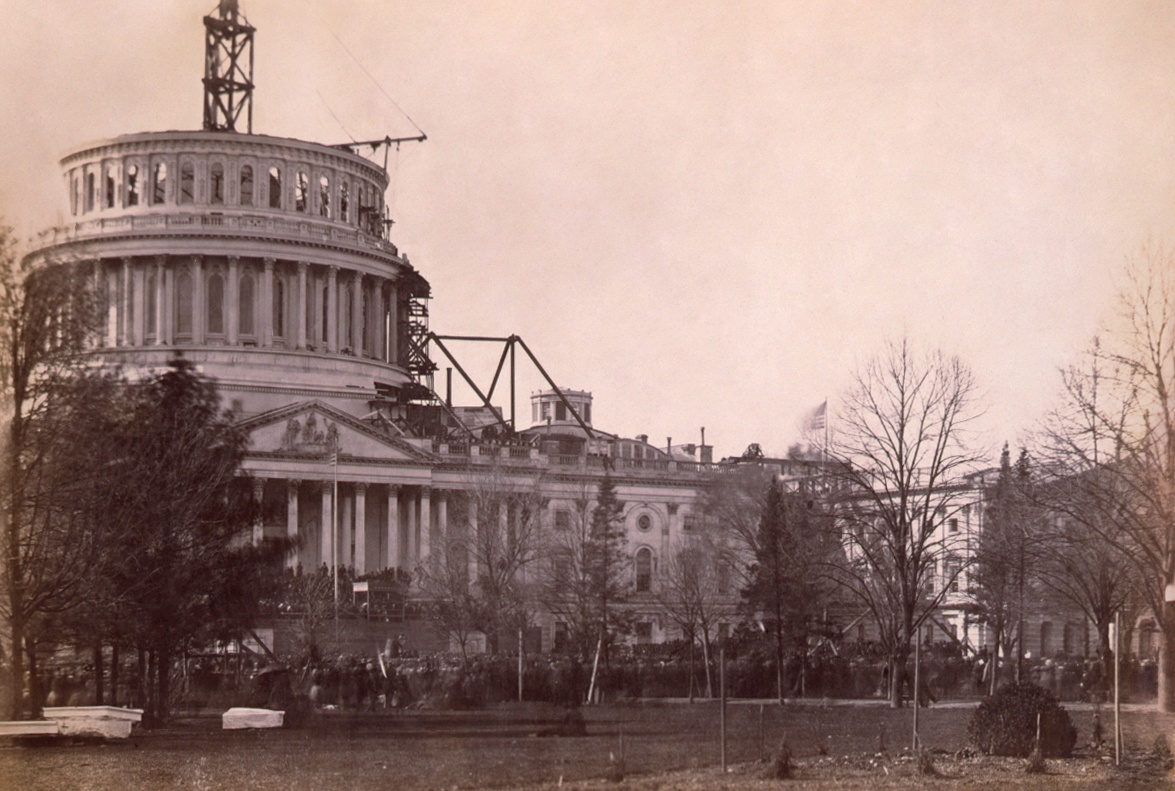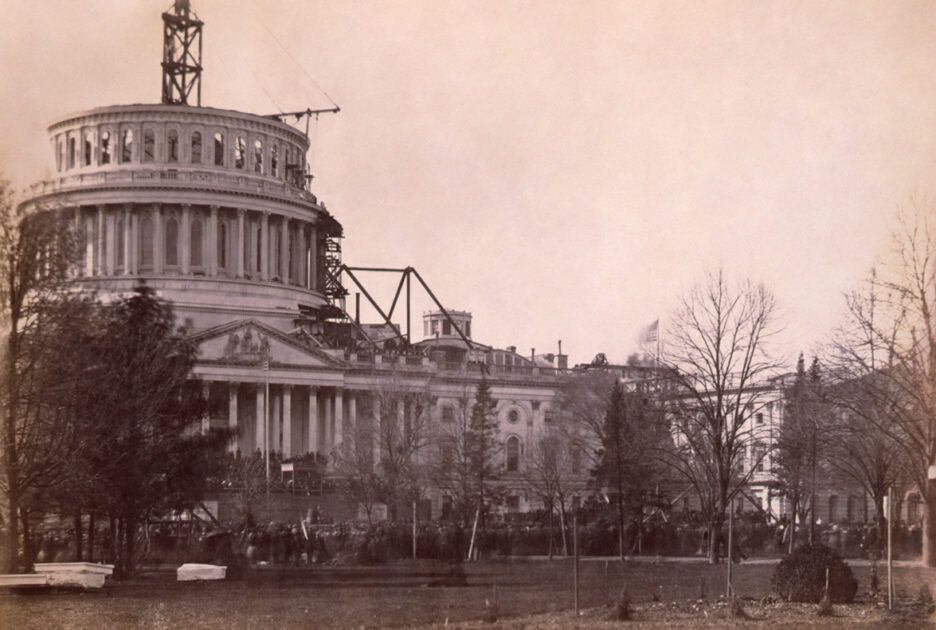






























































Photograph Source: Library of Congress – Public Domain
As of June 2025, ICE agents are storming California farms, mom-and-pop restaurants, and Home Depot parking lots — chasing undocumented workers through blueberry fields in chaotic mass sweeps to meet federal arrest quotas. In Los Angeles, Trump has deployed thousands of National Guard troops and Marines to suppress protests led by immigrant communities and their allies.
The headlines may be new, but the playbook remains the same. This country has always criminalized the very people who keep it running. Our stories reveal a deeper tension between the pride we take in our labor, our creativity, and the ways our families have adapted and survived, and the systems that continue to exploit and criminalize us. That contradiction demands more than reflection — it demands action. It demands imagination — and a new vision of international solidarity, migration, and what justice truly means for our families and communities.
“Black people and immigrants built this country.”
We hear that phrase all the time — in protest chants, political speeches, even liberal campaign slogans. It’s often used as a marker of pride, an assertion of our labor and contribution to this nation. And while it’s true that the United States was founded on stolen Indigenous land and built on the backs of enslaved Black people and exploited immigrant labor, we have to ask ourselves: beneath the slogans and posturing, what does it mean to build a country that was never meant for you?
Should we really take pride in the fact that our labor was stolen, our communities extracted from, and our people denied the ability to reap what they sowed, generation after generation? I’m sure the sharecroppers and corporations don’t mind us feeling proud — as long as they don’t have to pay us what we’re owed, or let us shape the rules. Pride is tolerable. Power is not. It’s one thing to celebrate our labor; it’s another to demand control over the systems that decide who gets to live, who gets to belong, and who gets to govern.
Our labor built this nation. But who did we build it for? And who’s still paying the price?
I (Eric) am the descendant of enslaved Black people and Mexican immigrants. My Mexican grandmother migrated here when she was eight years old. My Black ancestors were brought here in chains, and from what I’ve traced, they first settled in Virginia and Florida before joining the waves of Black families who moved west during the Great Migration. That journey eventually led to my grandparents’ meeting in Chula Vista, a small border town near San Diego.
Both sides of my family — Black and brown — have helped build this country, both literally and economically. But they were rarely allowed to reap the benefits of their labor. This nation was never designed for us to thrive. And yet, through their ingenuity, love, and resistance, my ancestors carved out pathways of possibility. Their legacy is the only reason I’m here today.
My (Gustavo) family’s story is defined by migration. My grandfather came to the U.S. to work in the steel mills near Lake Michigan, part of the wave of Mexican laborers brought in to fuel the wartime economy. My father followed, leaving the highlands of Jalisco for the snowy Midwest. They left behind generations of farming, including corn, squash, beans, and agave, as well as cattle. Like them, I left my rural home for a land of factories and smokestacks.
On the face of it, this is a story often told. However, what is not as obvious is that our displacement was by design. In the 1990s, neoliberal trade agreements like NAFTA lowered trade barriers, flooded Mexico with American corn, and decimated small farmers. People like my parents weren’t simply drawn to the US: they were pushed out. American industry profited by creating the conditions for displacement and then extracting cheap labor from the displaced.
Since its inception, the US has used economic and military force to destabilize other nations, and then criminalized the people forced to migrate as a result. This is not just a domestic issue. It’s a global system of extraction.
Take the Haitian migrants who arrived at the US border in 2021, chased by Border Patrol agents on horseback. Haiti, the first free Black republic, overthrew slavery and French rule in 1804. But in 1825, France forced Haiti to pay “reparations” to former enslavers under threat of invasion. That debt, repaid over a century, gutted Haiti’s economy. Since then, US occupations, foreign-backed coups, and austerity policies have only deepened the crisis. Now, Haitian people are fleeing the very empire that helped create the conditions they’re trying to escape.
Haiti isn’t alone. Migrants from Congo and across Africa arrive at the US-Mexico border, carrying the weight of histories shaped by colonialism, war, and corporate greed. The logic is the same: extract resources, displace people, and punish them when they arrive. We remember watching footage of border violence unfold on a smartphone — an object built with cobalt mined from Congolese soil, extracted under brutal conditions. That phone, like so many of our devices, is a product of war economies, meant to connect us, but also to distract us from the violence they depend on. These aren’t isolated tragedies. They are part of the same system: the violent legacy of empire and the ongoing theft of land, labor, and life. We’re seeing this system escalate in real time.
Those who feed this nation are being hunted. And those rising up in their defense are being brutalized under curfew and military force. Their presence at the border — and in the streets — is not just a humanitarian concern. It’s a reckoning. A mirror held up to the world we’ve allowed to be built, and the one we must fight to dismantle.
It’s easy to feel overwhelmed by the scale of it. But the pattern is clear: whether through incarceration or immigration enforcement, the U.S. continues to extract labor from the most vulnerable. People in prison work for pennies, or nothing. Detained immigrants are coerced into labor under threat of punishment. These systems are not broken. They function exactly as intended.
Real justice means fighting for the right to move and the right to stay. As Harsha Walia reminds us, we must struggle for both. That means dismantling the conditions that force migration — war, trade policy, climate catastrophe — while fighting for full rights and safety for those who migrate. And it means remembering: we didn’t come here by accident. These are the consequences of systems built to exploit.
Our liberation depends on international solidarity. We don’t just want better laws. We want to eliminate the conditions that force people to flee in the first place. A world where no one is forced to migrate to survive, but everyone has the freedom to move and thrive.
They call it resilience. We call it survival. But what we’re really doing is building something else entirely. Something they were never prepared for: a world we actually belong to. One without cages, without borders, without forced displacement and stolen labor.
We’re not just fighting to tear down what harms us — we’re fighting to build something we can co-create and co-govern. A world where everyone belongs, regardless of borders, birthplace, or background. Where care is a collective responsibility, and resources are distributed not by profit, but by need. Where no one is disposable, and our worth isn’t measured by productivity, but by our full humanity. A world rooted in the right to stay, to move, to heal, to be safe, and to self-determine.
If we built this country under chains, imagine what we could build in freedom. But freedom doesn’t come from waiting. It comes from organizing, resisting, and refusing to let our labor, our lives, or our liberation be commodified again. We don’t just want to survive the empire. We’re here to end it. And we don’t have to wait to start. Join the people organizing farmworkers, fighting deportations, and resisting militarized policing. This is the moment to stand with our people, not just in words, but in action.
The post What Does It Mean to Build a Country That Was Never Meant for You? appeared first on CounterPunch.org.
This post was originally published on CounterPunch.org.